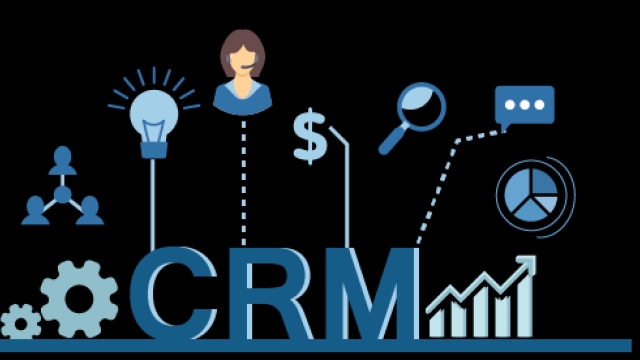In today’s highly competitive business landscape, optimizing sales and enhancing customer relationships have become crucial for companies across various industries. This is where a Customer Relationship Management (CRM) system comes into play, offering an array of benefits to service companies. A CRM system serves as a centralized hub that empowers businesses to streamline and manage key aspects of their operations, ranging from invoices and tickets to inventory management and finance. Additionally, it provides robust reporting and analytics capabilities, enabling organizations to gain valuable insights and make data-driven decisions. With the right CRM system in place, service companies can effectively enhance their sales processes, elevate customer satisfaction, and ultimately drive revenue growth. So, if you’re looking to take your sales game to the next level, keep reading to discover the ultimate guide to optimizing your sales with a CRM system.
Benefits of using a CRM system for service companies
CRM systems provide numerous benefits for service companies. Firstly, they streamline the process of managing invoices, tickets, and inventory. With a CRM system, service companies can create, send, and track invoices easily, ensuring accurate and timely payments from clients. Additionally, ticket management becomes efficient as customer inquiries, complaints, and requests can be organized in one central system, ensuring nothing slips through the cracks. Furthermore, inventory management becomes seamless, allowing service companies to track stock levels, reorder when necessary, and minimize waste or stockouts.
Secondly, CRM systems help service companies with barcode labeling. By integrating barcode scanning technology, service companies can easily identify and track products, increasing efficiency and reducing errors during inventory management and order fulfillment processes. Barcode labeling also enables accurate product identification and comprehensive tracking, making it easier to manage and monitor stock levels and ensure accurate order fulfillment.
Lastly, CRM systems provide powerful financial, reporting, and analytic capabilities for service companies. These systems generate comprehensive financial reports, allowing service companies to track revenue, expenses, and profitability accurately. By providing real-time insights into sales performance, customer behavior, and market trends, CRM systems enable service companies to make data-driven business decisions and identify areas for improvement. The ability to analyze customer data and preferences further enables service companies to enhance customer satisfaction, personalize offerings, and ultimately increase sales and loyalty.
In conclusion, service companies can leverage CRM systems for various benefits. From optimizing invoice and ticket management, barcode labeling, and inventory control, to gaining valuable insights through robust financial reporting and analytics, CRM systems offer a comprehensive solution to streamline operations and drive sales growth.
Key features of a CRM system for sales optimization
A CRM system designed for sales optimization is a powerful tool for service companies. With its wide range of features, it enables businesses to streamline their processes and drive better sales performance. Let’s explore some key features that make a CRM system invaluable for boosting sales.
-
Program for invoices, tickets, and inventory management: A top-notch CRM system provides an integrated program that seamlessly handles invoicing, ticketing, and inventory management. This eliminates the need for separate systems, allowing businesses to efficiently track their sales, manage customer requests, and keep an eye on their inventory levels all in one place.
-
Barcode labeling for easy product tracking: The incorporation of barcode labeling within a CRM system simplifies the process of tracking products from purchase to sale. By leveraging barcodes, businesses can eliminate manual data entry errors, enhance inventory accuracy, and expedite order fulfillment. This streamlined approach increases productivity and ensures customers receive their orders promptly.
-
Robust finance, reports, and analytics: A CRM system geared towards sales optimization provides comprehensive finance, reports, and analytics functionalities. With these features, businesses gain valuable insights into their sales performance, revenue trends, and customer behavior. Armed with actionable data, companies can make informed decisions that improve their sales strategies, identify opportunities for growth, and strengthen customer relationships.

In conclusion, a CRM system tailored for sales optimization offers a wide range of essential features that help service companies optimize their sales processes. From integrated programs for invoices, tickets, and inventory management to barcode labeling and robust finance, reports, and analytics capabilities, a CRM system acts as a game-changer by enhancing productivity, accuracy, and data-driven decision-making.
Implementation and Best Practices for a Successful CRM System Integration
When it comes to implementing a CRM system for service companies, there are several key factors to consider to ensure a successful integration. By following these best practices, you can optimize your sales processes and make the most of your CRM system.
-
Define clear objectives: Before diving into the implementation process, it’s crucial to have a clear understanding of what you want to achieve with your CRM system. Identify your goals and align them with the specific needs of your service company. Whether it’s improving customer service, streamlining ticket management, or enhancing inventory control, having defined objectives will guide the entire integration process.
-
Ensure data accuracy and consistency: One of the essential elements of a successful CRM integration is ensuring the accuracy and consistency of your data. Before importing data into your CRM system, take the time to clean and validate it. Remove duplicates, standardize formats, and verify the integrity of your data. This step will lay a solid foundation for efficient reporting, analytics, and decision-making within your CRM system.
-
Train and educate your team: Integrating a CRM system requires the active involvement and buy-in of your entire team. Provide comprehensive training and education sessions to empower your employees to make the most of the system. Ensure that everyone understands the value of using the CRM system and how it can optimize sales processes. Encourage open communication and address any concerns or questions they may have. Investing in thorough training will lead to increased adoption rates and overall system success.
By following these implementation best practices, you can optimize your CRM system for service companies. Clearly defining objectives, ensuring data accuracy, and providing proper training will lay the groundwork for a successful integration. Embrace the power of CRM and elevate your sales processes to new heights.


